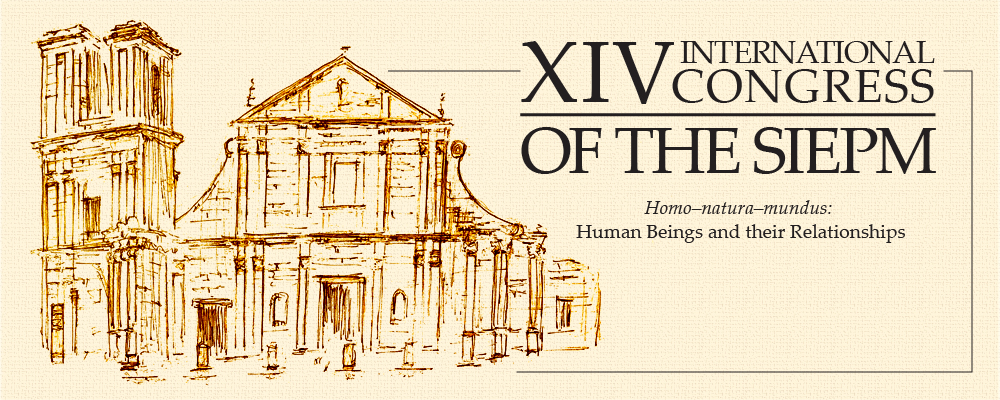
Check below the methods of payments that are available:
* Website: Until July 20, registration and payment can de made by credit card
* In person: contact EDUCON – Building 40, Room 201. These are the opening hours: 8am to 9pm, Monday to Friday.
During the days of the congress, it will be possible to enroll in this sector. Phone: (51) 3320 3680 / email address: educacao.continuada@pucrs.br.
|
LAST DEADLINE FOR SUBMISSION OF PAPERS: FEBRUARY 28, 2017. Read more details in the “Papers and General Themes
|
|
We suggest you use the “Google Chrome” Browser for better viewing of the site.
|
It is a great honor for us, organizers, to invite the members of the SIEPM to participate and to submit proposals of papers and Sessions for the XIV International Congress of the Société. We are pleased to have the opportunity to bring for the first time the congress to South America (Brazil) and see this as a very special occasion both to further the study of medieval philosophy in the country as well as in the continent and to understand at a much deeper level the connections between our history and the many faces of medieval thought and early modern scholasticism. Truly, as recent publications testify (see Basic Bibliography below), the closer examination of such connections in the history of ideas made by scholars in medieval philosophy and theology is something that the Société has being promoting at least since 2010, both by occasion of the XVIIth Annual Colloquium of the SIEPM (“Right and Nature in the Second Scholasticism”, Porto Alegre, September 15-18) and through the invaluable support to the research project “Scholastica colonialis: Reception and Development of Baroque Scholasticism in Latin American in the Sixteenth to Eighteenth Centuries”.
In order to find and to justify the general topic of the congress – “Homo – Natura – Mundus: Human Beings and their Relationships” – we worked first with the obvious guiding idea that it should be comprehensive enough to include all existing research areas and to meet at least a significant amount of research interests of the SIEPM members, thus putting into consideration the historical segments “Latin Philosophy 12th-15th Centuries”, “Jewish Philosophy”, “Islamic Philosophy”, “Byzantine Philosophy”, and “Second Scholasticism”. Second, we worked with the perspective that, although our continent did not experience a “Middle Age”, as that concept is usually understood in historiography, it was deeply influenced in its very constitution in the 16th-17th Centuries, both at the levels of moral, political, and legal ideas and at the more abstract level of “mental framework” of intellectual views in theology, philosophy, and law, by Second Scholasticism. As important researches by scholars such as M. Beuchot and W. B. Redmond have shown, such an influence of Second Scholasticism on the mental framework of Latin American colonial societies and academic institutions might in fact be characterized through the developments in traditional areas of philosophy such as logic, philosophy of nature and metaphysics. Following Iberian models of curricula, these fields of philosophy characterized the cursus philosophicus usually taught at faculties of arts in Latin America in the colonial period – for example, at the Royal University of San Marcos in Lima, founded on 12 May 1551 or at the Royal Pontifical University of Mexico, which opened on 21 September 1551. The philosophical formation offered in Jesuit schools (especially in Brazil) grounded on the Cursus Conimbricensis would reveal a similar picture.
However, it is notorious that it was in the area of “practical philosophy” – and, say, philosophical “anthropology” – that Second Scholasticism, as our most obvious connection with medieval philosophical thought in terms of history of ideas, touched from the beginning Latin America. In these areas we find a comprehensive and interrelated set of subjects, summarized under the heading “Human Beings and their Relationships”, which we propose to be investigated and discussed by all members of the SIEPM, under their many different perspectives. We present (Conception (Detailed View) several reasons that explicit the interrelated subjects within the heading just mentioned. We take this set of connected topics as relevant as such, i.e. as significant to our vision and study of medieval thought as a whole, irrespective of any necessary comparison to the many forms of Second Scholasticism. We take those topics as a valuable opportunity for new investigation and research in all historical areas of our Société.
DO YOU WANT TO SEND PAPERS?
Call for Papers, General Themes and Specific Topics:
As to the structure of the XIV International Congress of the SIEPM, 10 (ten) Plenary Sessions will take place in the Mornings (see the Provisional Program and the name of the Plenary Speakers below). Meetings of Commissions, Sections, and Working Partnerships are scheduled in the Mornings and Afternoons, with the exception of Monday (07.24.2017, only in the Afternoon) and Tuesday (07.25.2017, only in the Morning). The Afternoon Ordinary and Special Sessions will be dedicated to the presentation of papers selected after submission of abstracts. The submission of abstracts can be coordinated in advance by members who want to propose Sessions, so that the corresponding submissions (and / or the Session proposers after communication with the organizers) inform to which Session it should belong. We strongly encourage SIEPM members to discuss with the organizers their plans of proposing Sessions. Initially, we ask members who propose Sessions that they take the role of chairing them or at least take the initiative of in due time indicating Session chairs to the organizers.
Concerning Ordinary and Special Sessions, we propose several parallel sessions in the Afternoons, suggesting for each Afternoon 1 (one) general theme and 10 (ten) specific topics. The general theme and the specific topics are of course just an attempt to bring to such a comprehensive perspective, given in the Congress title “Human Beings and their Relationships”, a multiple, coherent, and integrated focus. But this is by no means an attempt of dictating in a narrow sense which subjects will be chosen by the participants who submit abstracts. It should be understood as a tool to propose well-reflected Sessions and to motivate members to freely ask for the possibility of coordinating Sessions. The organizers will take the step of making invitations to possible Session proposers and coordinators, according to their convenience and to their acquaintance with important scholarly work done by SIEPM members in the selected areas of interest. As we might expect, it is likely that the Final Program of the XIV Congress will bring some changes in the topics of the Afternoon Sessions, depending on the number and the contents of proposals that we shall receive within the period between the announcing of the First Circular and our proposed first deadline (10.28.2016).
Here the themes and the topics:
Monday – July 24, 2017:
I. Homo et communitas:
Tuesday – July 25, 2017:
On this day we shall have 3 (three) Plenary Sessions in the Morning and, as traditionally done in the SIEPM congresses, an Afternoon reserved for excursions).
Wednesday – July 26, 2017:
II. Natura et mundus:
Thursday – July 27, 2017:
III. Politia et res publicae:
Friday – July 28, 2017:
IV. Lex:
Independent sessions may be planned and take place in the Afternoons as well, opening possibility to further chosen topics that can be better accommodated into autonomous sessions. An important criterion to be observed in any case is that any session to be planned and proposed must (and at the end will) contain 3 (three) presentations, perhaps also 6 (six) presentations, comprising two Afternoon Sessions (1 and 2) on a given subject that happens to be object of particular interest. Any proposal of a session that apparently or definitely does not fit well into the proposed sample and structure of topics – for example, about logical, epistemological or metaphysical topics, i.e. areas not directly contemplated in our proposed justification of the Congress title and its Call for Papers – should be submitted to the organizers. We ask you, please, in such a case, to directly contact to us at the following e-mail: siepm2017@pucrs.br. Of course such proposals should be discussed in due time (preferably before the first deadline, i.e. October 28, 2016).
List of Plenary Speakers
Access here: SIEPM2017 – Program
Access here: SIEPM2017 – Sixth Circular
| SIEPM MEMBERS | Until October 28, 2016 | October 29, 2016 until Aprill 28, 2017 | Aprill 29, 2017 until July 28, 2017 |
|---|---|---|---|
| Scholars with permanent position | R$ 440,00 (US $ 120,00) | R$ 540,00 (US $ 150,00) | R$ 540,00 (US $ 150,00) |
| Scholars with no permanent position and from low currency countries | R$ 290,00 (US $ 80,00) | R$ 360,00 (US $ 100,00) | R$ 540,00 (US $ 150,00) |
| NON SIEPM MEMBERS | |
|---|---|
| Undergraduates | R$ 260,00 (US$ 70,00) |
| Graduates | R$ 330,00 (US $ 90,00) |
| Scholars with permanent position and general public | R$ 440,00 (US $ 120,00) |
|
To make your description, fast You must Click the Apply button below and fill in the fields indicated in the form . All of the Participants shall make YOUR Personal Description. |
Travel Costs, Travel Connections and Housing Possibilities
Porto Alegre has an International Airport (Aeroporto Internacional Salgado Filho), and there are many possibilities of connecting flights to reach the city. For participants coming from North America and Europe, for example, the most usual flights are over São Paulo (Guarulhos) and Rio de Janeiro, although there are direct flights from Lisbon (Portugal) to Porto Alegre as well. Possible connections are also over the airport of Lima (Peru), Buenos Aires (Argentina) and Montevideo (Uruguay). There are direct flights from these airports to Porto Alegre.
The easiest way to reach the venue of the Congress and the recommended hotels (see below) departing from the International Airport is by taking a taxi (from US$ 10,00 to US$ 20,00).
Distances and routes from the Aeroporto Internacional Salgado Filho to the Congress venue and to the hotels can be checked and calculated by means the following website: https://maps.google.com.br/.
Here an example (from Novotel Porto Alegre to the campus of the PUCRS).
Tickets from Europe and from North America to Brazil (Porto Alegre) cost in average ca U$ 1.000,00. For any more specific information on travel costs, travel connections, tourism and excursions (outside the Congress days), we recommend and will work together with the Agency FlyTour, which is located at the Central Campus of the Pontifícia Universidade Católica do Rio Grande do Sul (venue of the Congress)
* The organizers propose three options of excursions on the second Congress day, July 25, 2017:
(1) Porto Alegre, City Tour: Porto Alegre is the largest city of Rio Grande do Sul and the southernmost capital of a Brazilian state. The City Tour is planned to offer a view of important historical sites of the city, which was founded in 1772 (settlers came some decades earlier, when about 60 couples rom the Azores Islands / Portugal arrived in the settlement located on the eastern bank of the so-called Guaiba River). The City Tour includes a visit to the most important historical sites of the city, as well as to important cultural landmarks, such as the Praça da Matriz, Catedral Metropolitana de Porto Alegre, Nossa Senhora das Dores Church, Teatro Sao Pedro, City Hall, Piratini Palace, Casa de Cultura Mario Quintana, Public Market, The Rio Grande do Sul Museum of Art (MARGS) and the Iberê Camargo Foundation.
(2) Recanto Borghetti: A very tipical place of the Pampas Gauchos, 70km away from Porto Alegre, with delicious typical foods, the opportunity to know a bit of the country life of the Gauchos, their music, and go horseback riding.
(3) Serra Gaúcha: The Serra Gaúcha is a special place to find the Italian influence in Southern Brazil. By the end of the 19th century, the Venetian tradition of immigrants brought to Brazil some techniques of Wine production and culinary that made the region famous throughout the country. Different soil conditions and grapes helped the development of red and white wines with special features, generating labels with their own culture. The Brazilian production is mainly located on small farms (an average of two hectares per family) and it is dedicated to the production of table and handcrafted wines. The culinary is also a peculiar feature and includes Italian and Brazilian products such as polenta, jams, glasses, salami, and cheeses. During this trip, we propose to visit some important wineries and dine in the region.
* The agency has also prepared top tourism destinies in Brazil and South America: Rio de Janeiro, Minas Gerais (historic colonial cities), Foz do Iguaçu, Buenos Aires (Argentina) e Lima – Cusco (Peru).
SELECT ONE OF THE PACKAGES HERE
IMPORTANT:
THE EXCURSIONS AND TRIPS SUGGESTED HERE ARE NOT INCLUDED IN THE EVENT REGISTRATION FEE.
THEY MUST BE PURCHASED SEPARATELY FROM THE FLYTOUR AGENCY.
The contact person is Mr. Gilberto Chaves (Portuguese, Spanish, English and French)
E-mail: gilberto@flytourdwl.com.br
Site: http://www.flytoursul.com.br / Telephone: 55 51 3339 9272 / Whatsapp: 55 51 9933 0633
Address: Campus Central da PUCRS – Av. Ipiranga 6681 – Prédio 41, Sala 8 – Bairro Partenon – CEP: 90.619-900 – Porto Alegre / RS, Brasil
For those who register in the SIEPM Congress, we provide a quite broad range of accommodation possibilities (hotels in the vicinity of the university campus).
The hotels identified with (*) offer differentiated prices due to an agreement with the Pontifical Catholic University of Rio Grande do Sul. For the values stated, there are a limited number of hotel rooms. We advise you to contact them as soon as possible to guarantee room prices.
The reservation under reduced prices (informed in Brazilian currency) and details (guarantee of non-attendance, parking, tourism tax, internet, breakfast, other room options), can be done directly with the hotel staff, by mentioning the SIEPM International Congress:
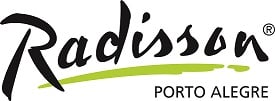
Radisson Porto Alegre (* differentiated prices);
Av. Cel. Lucas de Oliveira, 995, Bairro Bela Vista, Phone 55 51 3019 8000.
E-mail contact: reservas1.rpoa@atlanticahotels.com.br
Rates:
Superior Single – R$ 259,00 (+ 5% ISS rate + 10% service charge)
Superior Double – R$ 299,00 (+ 5% ISS rate + 10% service charge)
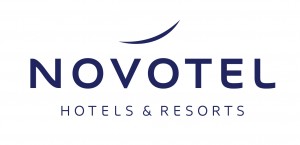
Novotel Porto Alegre (* differentiated prices);
Av. Soledade, 575, Bairro Três Figueiras, Phone: 55 51 3327 9292.
E-mail contact: h3258-re@accor.com.br
Rates:
Single – R$ 264,00 (+ 5% ISS rate)
Double – R$ 346,00 (+ 5% ISS rate)
Make your reservation at Novotel by clicking here
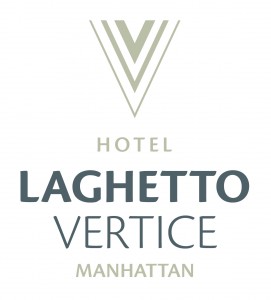
Hotel Laghetto Vertice Manhattan (* differentiated prices);
Rua Miguel Tostes, 30, Bairro Moinho dos Ventos – Phone: 55 51 0300 3130 925
E-mail contact: reservas7@laghettohoteis.com.br
Rate:
Luxo Single – R$ 265,00 (+ 10% rate)
Luxo Duplo – R$ 290,00 (+ 10% rate)
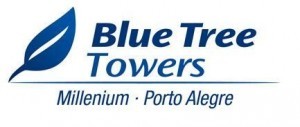
Blue Tree Towers Millenium Porto Alegre (* differentiated prices);
Av. Borges de Medeiros, 3120, Bairro Praia de Belas, Phone: 55 51 3026 2200.
E-mail contact: vendas.millenium@bluetree.com.br
Rates:
Superior Single – R$ 240,00 (+ 5% ISS rate)
Superior Double – R$ 280,00 (+ 5% ISS rate)

Everest Porto Alegre Hotel (* differentiated prices);
Rua Duque de Caxias, 1357, Bairro Centro Histórico – Phone: 55 51 3215 9500.
E-mail contact: centraldereservas@everest.com.br
Rates:
Standard Executive Single – R$ 181,00 (+ 5% ISS rate)
Standard Executive Double – R$ 208,00 (+ 5% ISS rate)
• Maximum of 30 rooms in this amount. Limited vacancies.

Intercity Hotels
Av. Borges de Medeiros, 2145 – Bairro Praia de Belas, Fone: 55 51 3022 9101
www.intercityhoteis.com.br
Rate:
Luxo Single – R$ 250,00 (+ 5% rate)
Luxo Duplo – R$ 275,00 (+ 5% rate)
Information from the Bureau of the SIEPM and Applications for Brepols-SIEPM Stipends
Please, pay attention to the following important information from the Bureau of the SIEPM:
(1) To facilitate attendance at the XIV International Congress of the SIEPM, Brepols-SIEPM stipends are available for researchers under the age of 35 or from low-currency countries. The stipends are 500 €, or 750 €, if the journey is transcontinental. One need not to be a current member to apply for a stipend. Applications should be submitted via the online stipend form. The deadline for all applications is March 15, 2017. Conditions for the Brepols-SIEPM Stipends and the selection criteria are available at the SIEPM Website: https://www.siepm.uni-freiburg.de/siepm-stipends/brepols-siepm-stipends .
(2) Sections-Stipends are available for researchers who belong to an SIEPM recognized Section that is part of an SIEPM Commission. The sitpends are 500 €, or 750 €, if the journey is transcontinental The deadline for application is March 15, 2017. Before applying, please contact the SIEPM Secretary General: maarten.hoenen@philosophie.uni-freiburg.de.
(3) Only SIEPM Members can present papers at the Congress.
(4) The voting for the new Bureau will take place on Wednesday, July 26, 2017. For those members who cannot attend the Congress, proxy request-forms are available on the SIEPM Website, under the following link: https://www.siepm.uni-freiburg.de.
(5) The SIEPM General Assembly will take place on Thursday, July 27, 2017, on the Theater of the Pontifícia Universidade Católica do Rio Grande do Sul (http://cepuc.pucrs.br/espacos-locaveis/teatro-do-predio-40/ ), which is also the venue of all Plenary Sessions of the congress.
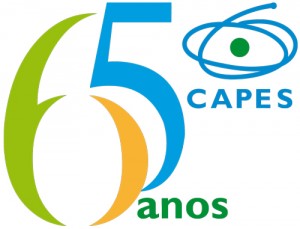
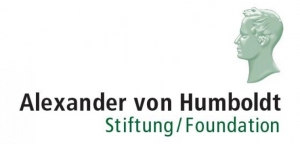
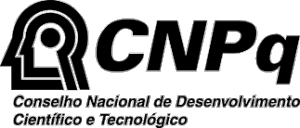
https://weather.yahoo.com/
